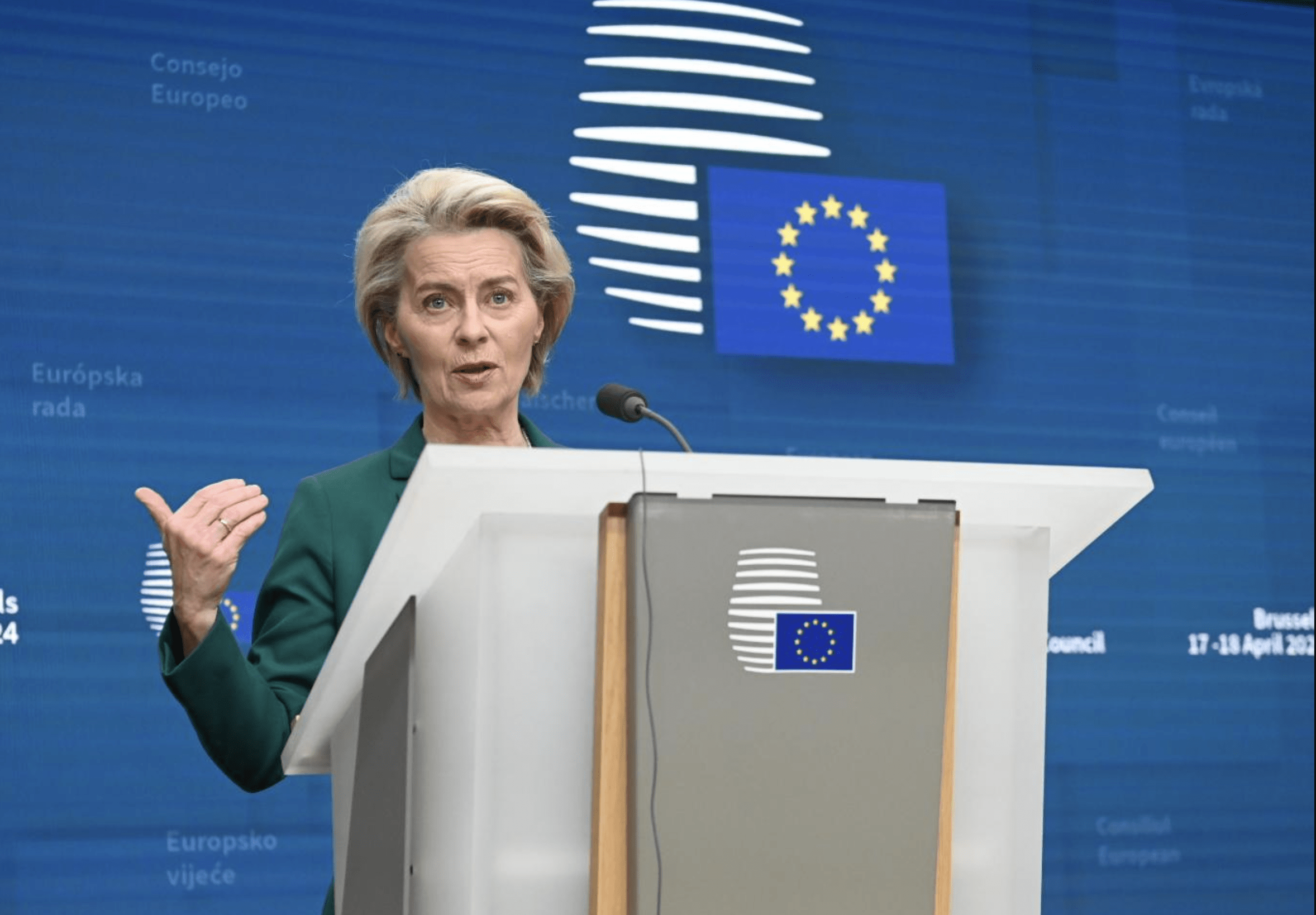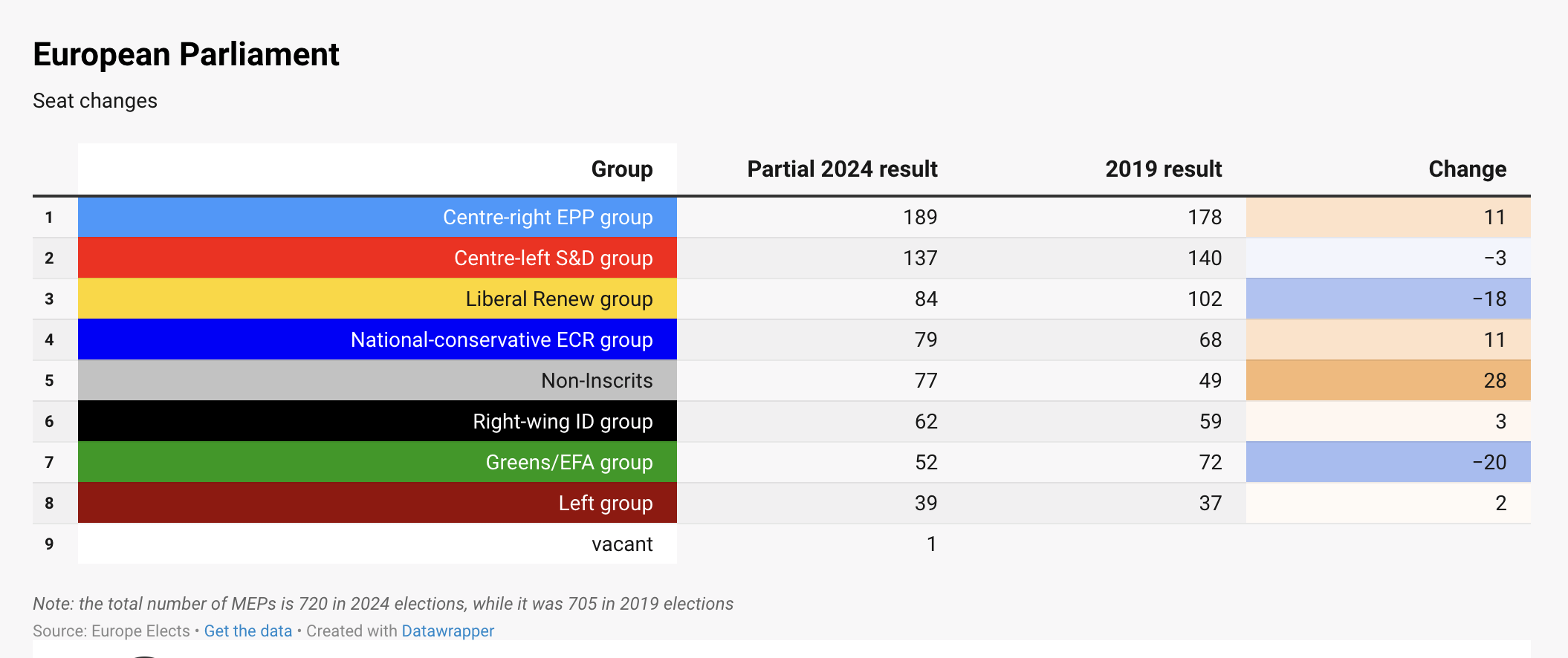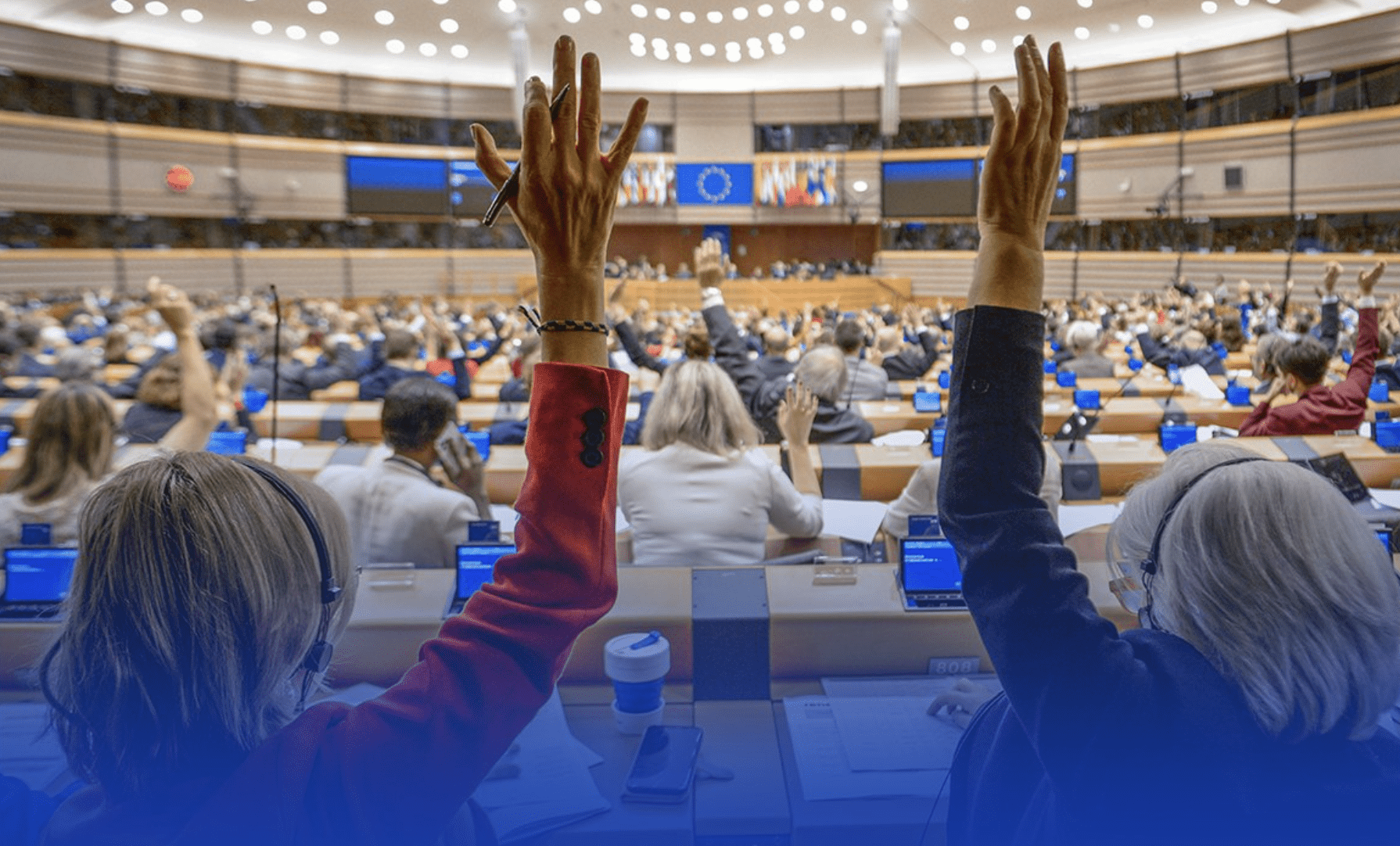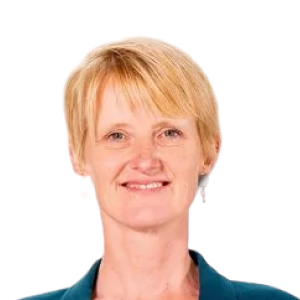A Second Term for Ursula Von der Leyen? The Rocky Road Ahead
After decades of being perceived as too technocratic and distant, the fight for the European Union’s top jobs has become highly anticipated and much more political

After the results of the 2024 European Parliament elections poured in, President of the European Commission, Ursula von der Leyen, declared that the pro-European center held, and that her lead candidacy for the European People’s Party had been a success.
While von der Leyen’s own center-right party grouping indeed gained in seats, and the center-left grouping Socialists & Democrats & Democracy were predicted only to lose a few, the third party grouping of the center, the liberal Renew, fared way worse. These losses of the liberals were among the largest in member states, such as Germany, the Netherlands, and Spain, but it was the poor showing of the party of French president Emmanuel Macron, Renaissance, that received lots of news coverage after the election.
The far-right party of Marine Le Pen, the Rassemblement National, gained more than twice the votes of Renaissance in France, and Macron caught even party insiders by surprise as he called a snap election, to be held by the end of June, or the beginning of July. It is a big gamble for the political heart of France, one of the European Union’s most important member states.
There will not only be a battle for the political leadership in France but also in Brussels in the coming weeks. With the results of the European Parliament election being made official, the wrangling for the top jobs in the European Union, the Commission President being surely one of the most important, will begin.
With the victory of the European People’s Party, outperforming predictions ahead of the vote, and the resounding win of her own Christian Democratic Party in Germany, von der Leyen should be the clear favourite for the Commission President job.
Unlike 2019, when she was piloted in after the vote, this time around von der Leyen was the leading candidate.
My research with colleagues shows that during her first term in office, von der Leyen gained significant name recognition and secured substantial public approval. These factors undoubtedly contributed to the good showing of her party group, the European People’s Party.

More Options than in 2019
That said, this all does not mean that von der Leyen will secure a second term, what it does mean is that if she gets the nomination, there will likely be a rocky road to confirmation ahead.
In this context, it is important to recall that her Commission’s confirmation in 2019 was far from straightforward.
The majority in Parliament was razor thin, with only 9 votes margin.
Securing this majority required lots of concessions and backroom deals with not only the three centrist party groupings but especially also with the greens.
In 2019, the majority of the three centrist party grouping was much larger than it is now. So, in order to secure a path to confirmation, von der Leyen will have to show great negotiation skills, and here is where the problems may lie.
Compared to 2019, von der Leyen has more options. She can negotiate with the greens and left groups, but also with the radical right.
Yet, how she will be able to propose legislative proposals that will satisfy both, is unclear. The left and green groups will want concessions so that the European Green Deal will be left untouched and migration policy is not pushed to becoming too restrictive.
The radical right will want the exact opposite. Against this backdrop, von der Leyen and her party group will have to think hard about how to appease both camps.
These trade-offs are particularly sensitive within the European Union context, as the European Council proposes the candidate for the Commission presidency and the Commission itself before the confirmation vote in the European Parliament.
This means that government leaders will likely only want to commit to a candidate that could actually secure a majority for the Commission proposal in Parliament.
As a result, von der Leyen will have to negotiate with both institutions and this will happen simultaneously, adding to the complexity of her path to a second term.
A Much More Political Top Job
While the road to confirmation will likely be complicated for von der Leyen, this in itself signals an important development in European politics.
After decades of being perceived as too technocratic and distant, the fight for the European Union’s top jobs has become highly anticipated and much more political.
Navigating a more political Commission and more difficult nomination process will be difficult for all involved, but it clearly shows that the outcome of the European Parliament elections matters and has an impact on what happens in Brussels. This also signals to voters that it matters who will lead the European Commission, both in terms of personalities and policies.
The elections for the second largest democratic assembly body in the world, after the parliament in India, are finally becoming more important for the policy direction of the European Union and how Europe resonates with voters. Regardless of what the outcome will be in the end, this can be considered good news for democracy in the European Union.

In 2019, the majority of the three centrist party grouping was much larger than it is now, nevertheless, von der Leyen won by 9 votes only

If you are interested in the European Parliament activity, please check a new tool that the IEP@BU has just launched, with professors Simon Hix and Abdel Noury: the EPVM - European Parliament Vote Monitor
IEP@BU does not express opinions of its own. The opinions expressed in this publication are those of the authors. Any errors or omissions are the responsibility of the authors.
